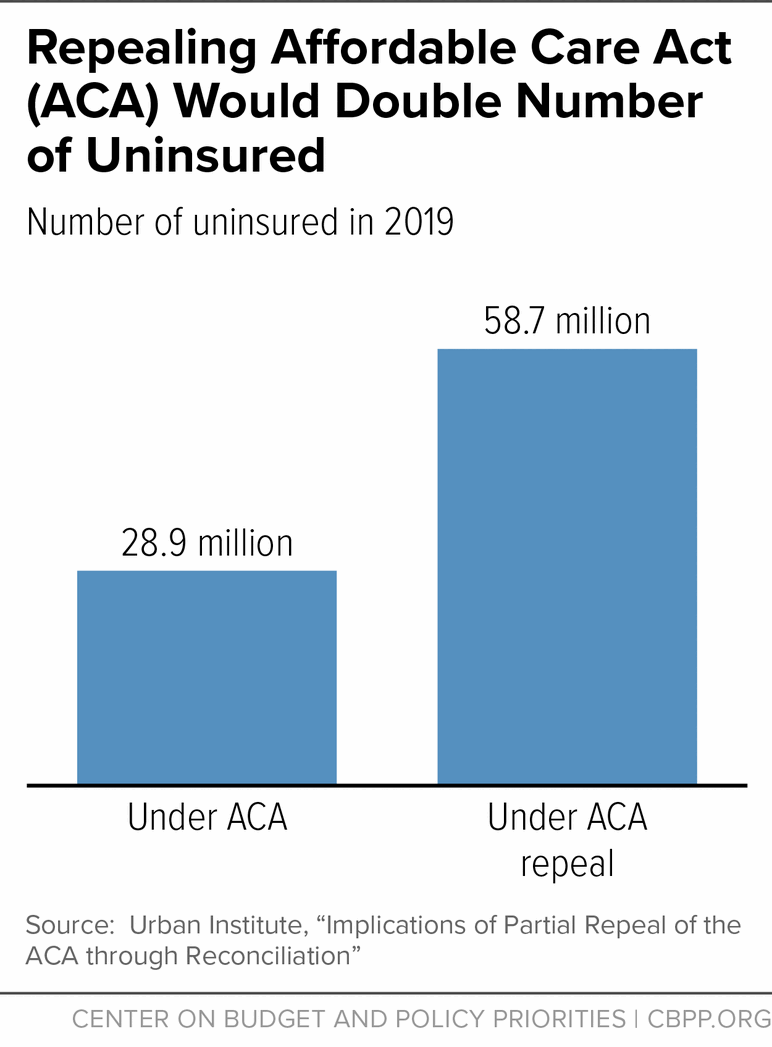BEYOND THE NUMBERS
Republican congressional leaders’ plan to repeal most of the Affordable Care Act (ACA) without replacing it would double the number of uninsured people — from roughly 29 million to 59 million (see graph) — and leave the nation with an even higher uninsured rate than before the ACA, new Urban Institute estimates show. We’ve prepared state-by-state fact sheets based on the Urban data.
Urban estimated the impact of an approach similar to the reconciliation bill that President Obama vetoed in January 2016, which would have repealed after two years the ACA’s Medicaid expansion and subsidies to help low- and moderate-income people buy coverage in the insurance marketplaces. Those changes, alone, would raise the number of uninsured by 22.5 million when they took effect in 2019, Urban found.
Another 7.3 million people would become uninsured in 2019 because, together, the bill’s immediate repeal of the individual mandate, eventual elimination of marketplace subsidies, and retention of ACA protections for people with pre-existing conditions would cause the individual insurance market to “virtually collapse.” As the report explains:
Eliminating premium tax credits and cost-sharing assistance would make coverage unaffordable for many of the people currently enrolled, causing them to drop coverage. Those with the fewest health problems would drop their coverage fastest.
Eliminating the individual mandate penalty would reduce the incentive to enroll for healthy people who can afford coverage.
Insurers would remain subject to the requirement to sell coverage that meets adequacy standards to all would-be purchasers, and they would remain subject to the prohibition against charging higher premiums or offering reduced benefits to those with health care needs.
Moreover, the impact of that collapse would be immediate, with 4.3 million people dropping coverage and becoming uninsured in 2017 due to the individual mandate’s repeal.
The report’s other key findings include:
- The vast majority (82 percent) of people becoming uninsured in 2019 would be in working families and would not have college degrees (80 percent).
- More than half (56 percent) of those losing coverage would be non-Hispanic whites.
- The doubling of the number of uninsured would cause demands for uncompensated health care to skyrocket by $1.1 trillion over 2019-2028, placing heavy new burdens on state and local governments and health care providers.
As we’ve written, policymakers should make health care more affordable and available to those who still don’t have it, not make it unavailable for tens of millions who do.

